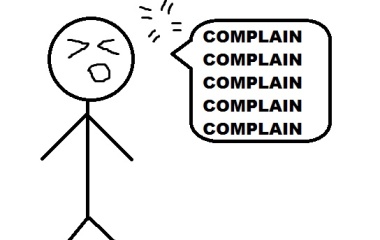
It is amazing how selective our memory can be. People often yearn for the good old days: days full of poverty, pogroms and peddling. The ability to forget the difficulties of the past is a necessary tool for our mental well-being. It is that which allows us to put our lives back together and rebuild after personal or national tragedies.
We often choose to remember what suits us, conveniently forgetting those facts which upset our view of the world. No better example can be found than that of the generation of the Jews who left Egypt. While having their needs taken care of as they wandered in the desert, they found fault at every conceivable opportunity. It took just three days from their leaving Har Sinai to start the bickering. What are we doing here in the desert when life in Egypt was so much better was a constant refrain. “We fondly remember the fish that we could eat in Egypt at no cost”, they exclaimed, "along with the cucumbers, melons, leeks, onions and garlic", they continued. "But now our spirits are dried up, with nothing but the manna before our eyes" (Bamidbar 11:5-6).
Is this the true picture of life in Egypt? What happened to the slavery, the backbreaking work, and the babies tossed in the Nile? What about the excessive taxes, the breakdown of family life? The Torah (Shemot 5:18) tells us that the Egyptians did not even supply the necessary materials for the Jewish worker. Did these same Egyptians really supply free fish?
Unfortunately, it is not uncommon for people to misrepresent the past or to tell an outright lie when it serves their purposes. When people are unhappy about the present they often compare it to a non-existent past, lamenting the perceived turn of events. While the Jews had to subsist on matza that was quickly forgotten. A rosy picture of the past is painted, justifying dissatisfaction with the present.
Many commentaries assume the Jewish people were not lying. Fish, fresh fruit and vegetables really were available for free in Egypt. However it was free for one reason only; to enable the Jews to have enough strength to do their hard work. A hungry slave cannot be a productive worker. The Egyptians ensured that we were not to be hungry. How tragic that the Jews remembered the good food but not the real price they had to pay for it.
This phenomenon is not unique to slaves. Many firms pay enormously high wages to attract the best. However, the benefits often come at a high cost in time, stress and spiritual growth. There really are no free lunches.
Rashi (Bamidbar 11:5), echoing the view of the Rabbis, declares that it was not fish and fruit that was the true source of their grumbling. Rather the "freedom" in Egypt to which they allude is freedom from responsibility. Chinam min hamitzvot, free from religious obligations, is how the Rabbis expressed the true feelings of the Jewish people. In Egypt there were no moral restraints or restrictions placed upon them. They could eat what they wanted, marry whomever they pleased, work seven days a week if they so desired and did not have to share whatever abundance they may have had with others. All of a sudden they were now bound by laws governing every facet of their lives.
For those to whom Torah is irrelevant no amount of suffering is tolerable. Just give us our freedom to do as we please, they plead. Those for whom Torah is a way of life realize that implementing Torah may at times entail discomfort and hardship. No worthwhile goal comes easily. And there is no goal more worthwhile than striving to apply the beauty of Torah to our daily lives.



